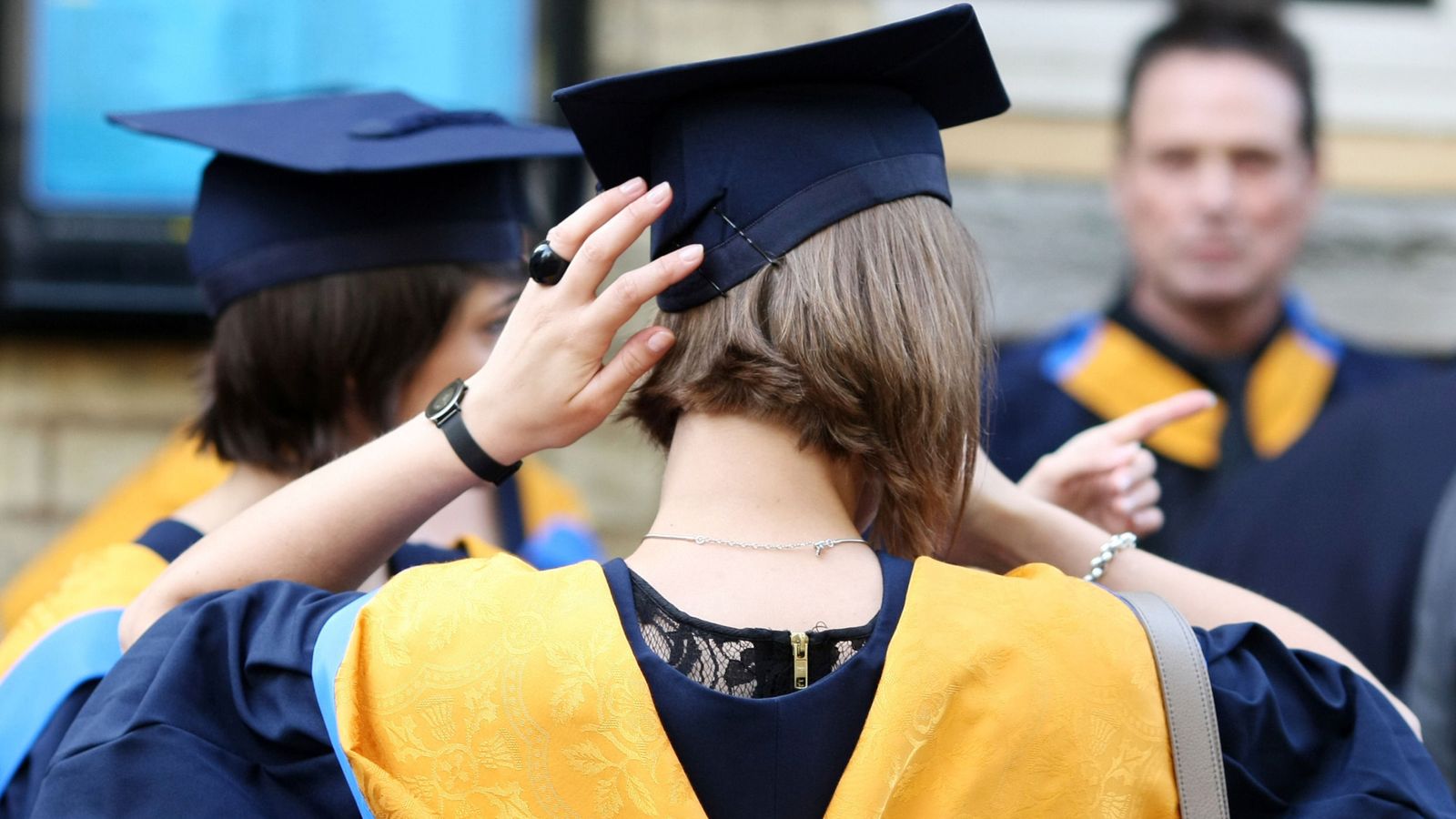A record number of students have been accepted into their first choice of university following this year’s A-level results day.
The COVID-19 pandemic has significantly impacted the 2021 results, as hundreds of thousands of students received grades determined by teachers rather than exams.
But another record year for undergraduate numbers will likely embolden the government as it prepares to hone in on policies steering young people away from university to try to reduce the cost to the exchequer – and an education secretary who thinks the numbers going are too high.
This week, the founder and chairman of the Sutton Trust Sir Peter Lampl, who is a key figure in the social mobility field, said that too many young people are opting for degrees.
He told The Telegraph: “I think there are too many kids going to university. Too many graduates come out with a lot of debt – the levels of debt are astronomical – and in many cases they come out with skills the marketplace doesn’t want.
“The students aren’t going to be able to pay back the debt so that is a big problem. Who is going to pay? We are giving them the money – the taxpayer is funding this – and the taxpayer is not going to get paid back.”
In 1999, then-prime minister Tony Blair introduced the ambition for the UK to have 50% of its students going to university, citing education as “the key to success”.
In 2019, that symbolic 50% was passed for the first time in England.
But now there concerns in Whitehall over a bloated higher education establishment with student numbers on the up.
Ahead of A-level results day, Education Secretary Gavin Williamson urged parents to be “open-minded” about degree apprenticeships, saying that university was “just one of the many options for young people to consider”.
Degree apprenticeships combine full-time paid work and part-time studying for a degree.
The government’s new skills bill will also aim to attract more people to vocational qualifications and sponsor technical skills training.
David Hughes, chief executive of the Association of Colleges, told Sky News he welcomes any government shift away from the 50% target, dismissed by Gavin Williamson as “absurd” in a speech last year.
He said the focus many young people have on university at the expense of vocational qualifications or technical training is galling.
“It’s just not right. A lot of young people don’t want to spend three years away from home getting into enormous debt.
“We want brilliant options for degree apprenticeships, technical training, and more employers need to offer this.
There are lots of jobs that don’t need a degree but where prospects for promotion are really good.”
The Conservative chair of the Education Select Committee, Robert Halfon, told Sky News that he would also support an overhaul of the higher education system in favour of directing government funding elsewhere.
“If you’re academic, it’s a wonderful thing to do [and] you socialise with your networks for the future.”
But he added: “We’ve had a cult of uni, uni, uni. We need a cult of skills, skills, skills.
“We should have an ambition of 50% [of young people] doing apprenticeships and incentivising young people to do apprenticeships.”
There are also concerns about the mounting costs of funding student loans to the exchequer.
The Department for Education is working up potential options to curb the costs of the student loan system. Re-introducing controls on student numbers and barring some from accessing student loans altogether have been reported as options.
The treasury is also looking at how to cut costs, with outstanding loans reaching £140bn last year.
Jack Britton, Associate Director at the IFS, told Sky News that the costs to the students themselves, too, are high – but there are benefits.
“Pretty large amount of students are going to university where the benefits are questionable…especially to the taxpayer.
“20% of higher education students are worse off by going to university over their lifetime.
The flip side is that 80% of people will benefit. The average [private return] is £110,000 per individual. That’s a pretty good stat.”
Recent IFS analysis also says that among the state-educated, the poorest 20% of students have relatively large gains – even though their average earnings by age 30 are lowest. They estimate they would earn much less had they not gone to university.
However, the mood music in Whitehall seems to be that attitudes in the country need to move towards a more skills-based, holistic look at post-16 education – especially as the prime minister looks to revitalise his “levelling up” agenda as the coronavirus pandemic in the UK winds down.






















